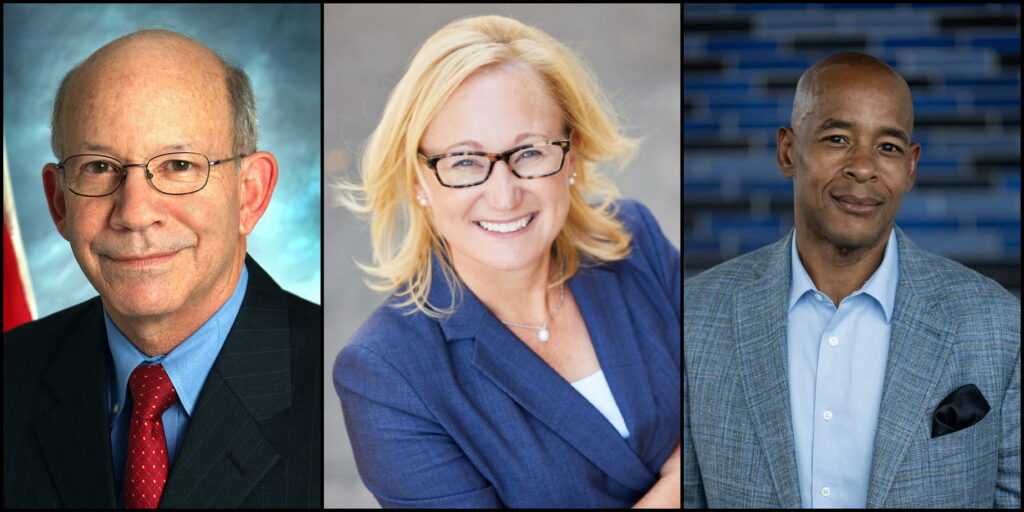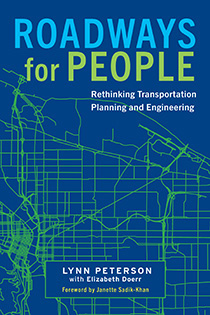Media Release: Future of Transportation visualizes transformative transportation of tomorrow

EUGENE, OR — On Monday, April 10, Better Eugene-Springfield Transportation (BEST) and AARP Oregon hosted the community for a roundtable conversation featuring Peter DeFazio, Lynn Peterson, and Jameson T. Auten discussing how to respond to transportation challenges and opportunities.
Gathered at the UO Ford Alumni Center, guests enjoyed provided food and drink and learned about transportation opportunities from community partners in transportation before taking their seats for the roundtable discussion and question and answer portion of the event.
All speakers described their journeys to the transportation scene, and the lived experiences that shaped their backgrounds. The conversation then shifted to the top challenges and opportunities for improving transportation and what planners, engineers, elected officials, other community leaders, and people on the street should be doing to bring about better transportation.
Peter DeFazio highlighted the need to address transportation’s role in the global climate crisis. “First and foremost, we have to reduce carbon pollution from transportation. There’s nothing more important than that. Save the planet, then we can move on to other things. There are tools within the national policy…for active transit, for micromobility… We are in an incredible era of innovation, but we have a little problem with policy makers [voting down bills, claiming], ‘climate doesn’t belong in a transportation bill.’ And I said, ‘climate is the issue with transportation.’ ”
Lynn Peterson touched on the importance of including the community in transportation problem solving. “I think what’s happened is that there are a lot of myths around safety… The question is how do you involve community at the front end, in the problem statement, so you get a better solution set that then can be backed up by federal legislation… We need to prioritize all modes and all people.”
Jameson T. Auten discussed the need for transit systems to become outcome oriented. “What are the outcomes that we’re solving for? Now, a few years ago, if you asked me what a successful transit system looked like, I’d start spouting off ridership numbers… and trips per hour, and all of those great operational statistics… But what are we really solving for and how are we solving with the community?”
The event closed out with an opportunity to purchase Lynn Peterson’s new book, Roadways for People.
